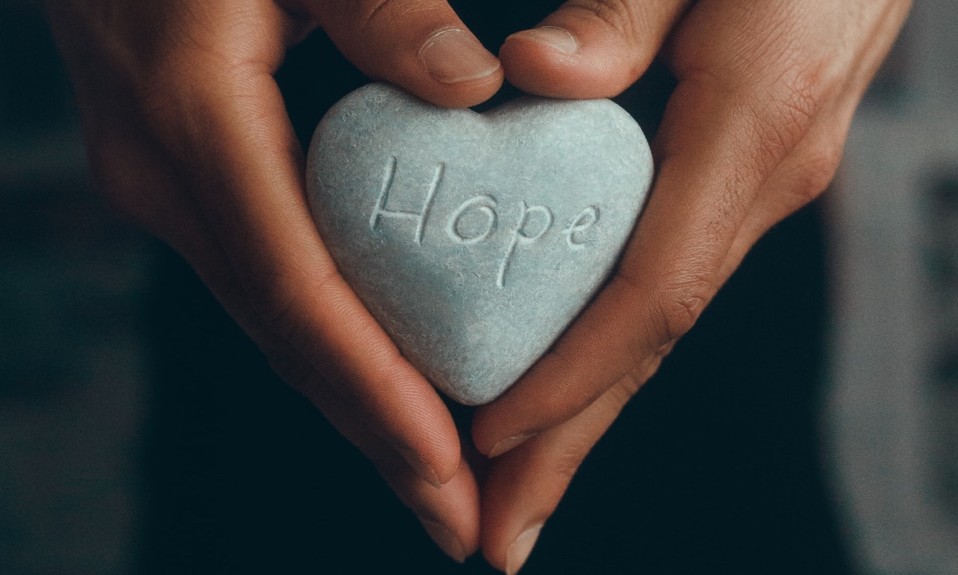The pandemic will have long-term ramifications on SUD and AUD treatment, says Lorenzo Leggio, senior investigator for NIAA-NIDA
By William Wagner
September 23, 2020Are individuals who struggle with substance use disorder (SUD) and alcohol use disorder (AUD) more vulnerable to the ravages of COVID-19?
An article published in July in The American Journal of Psychiatry took on that very question, and its answer was an unmistakable yes. Now data is starting to trickle in that supports the article’s assertion. For a newly released study funded by the National Institutes of Health (NIH), researchers pored over non-identifiable electronic health records of about 73 million U.S. patients. They found that 10.6% of the pool of patients in the study had SUD and made up 15.6% of the total COVID-19 cases.
At the same time, COVID-19 has pushed more people into the ranks of the addicted and has the potential to worsen the conditions of those already afflicted with AUD and SUD. Essentially, the United States is experiencing a pandemic within a pandemic, or, as the American Journal of Psychiatry article suggests, a “perfect storm.”
We saw an addiction increase after catastrophic events like 9/11 and Hurricane Katrina.”— Lorenzo Leggio, M.D., Ph.D., M.Sc., senior investigator for the joint NIAA-NIDA Section on Clinical Psychoneuroendocrinology and Neuropsychopharmacology
“Given the COVID-19 pandemic, tackling the alcohol and substance use disorder crisis may be even more problematic because, as in a perfect storm, a combination of elements serves to worsen the already complex clinical conditions of patients with these disorders,” the article states. “The consequences of this storm may spread long after the pandemic is resolved and may affect a large proportion of the population, beyond individuals with current alcohol and substance use disorders.”
A couple months after the American Journal of Psychiatry article was published, the pandemic rages on in the United States, with no clear end in sight. For thoughts on the current state of the relationship between COVID-19 and addiction, Treatment Magazine.com turned to one of the American Journal of Psychiatry article’s authors, Lorenzo Leggio, M.D., Ph.D., M.Sc. Leggio is senior investigator for the joint National Institute on Alcohol Abuse and Alcoholism (NIAA)-National Institute on Drug Abuse (NIDA) Section on Clinical Psychoneuroendocrinology and Neuropsychopharmacology.
Q: Since your article was published, has the situation worsened for those with SUD and AUD?
A: It’s hard to say whether things are getting better or worse, but they are not good in general. My gut feeling is that things will continue to be challenging and problematic during the COVID-19 era for patients with addiction.
Our first concern is about people with the medical problem of alcohol use or substance use disorder and the [accompanying] risk factors. The other concern is people who don’t now have an alcohol and/or substance use disorder but might have the risk factors. The pandemic may lead to the development of these problems.
To make an analogy: Think about people with a predisposition to develop lung cancer; if they start smoking heavily, this will increase their risk of developing cancer. People are at risk of developing addiction because of genetic, environmental and social reasons. On top of that, you’re adding this unprecedented pandemic. It may create a wave of people in need of addiction treatment. We saw an addiction increase after catastrophic events like 9/11 and Hurricane Katrina.
Q: As your article states, people with SUD or AUD are more vulnerable to COVID-19. Do you see that becoming an even greater danger as the pandemic drags on?
A: Patients with alcohol and substance use disorders do have an increased risk of infections—not just COVID but infections in general. In part, this is because alcohol and drugs damage the immune system. They make your immune system vulnerable, which increases your risk of getting infections.
To make things more complicated, these are patients who also may have medical problems to begin with. For example, patients with addiction often have riskier [behaviors]; think about smoking. Also, they tend to be more prone to cardiovascular problems, including hypertension and heart issues. Other organs are damaged, too. And then when they get an infection—compared to someone who’s healthy—they have multi-organ medical problems. The body is less able to fight against the virus, and this leads the body to be more susceptible to complications from it.
COVID-19 has pushed more people into the ranks of the addicted and has the potential to worsen the conditions of those already afflicted with AUD and SUD.
Q: How much solid data can we expect to see showing that individuals with AUD or SUD are more susceptible to COVID-19?
A: For now, I don’t know that we could claim there is a specific susceptibility. But we do know—and there is plenty of data [to support this]—that patients with alcohol and substance use disorders have a higher susceptibility to infections. There is no reason to believe that patients with addiction would not be more susceptible to COVID, just like they’re more susceptible to flu and pneumonia. It’s clinical common sense.
But you make a good point. There have been reports and surveys about patients with addictions during the pandemic, so we’re going to have a huge wave of data. On the other hand, I have seen papers—in particular from countries in Asia or Iran—that were claiming the potential of alcohol to be protective against COVID for whatever non-scientific reason. So, I guess what I’m saying is that sources are very important, because there is often fake news and fake information around. It’s important to say that drug abuse and alcohol abuse are really, really dangerous to our body; they do increase the risk of infections. And there’s no question, just based on common sense, that they definitely increase the risk of getting COVID-19 and increase the risk of complications from COVID-19.
We do see data where there’s been an increase in the sales of alcohol, and there’s been an increase in mental health comorbidities.”—Lorenzo Leggio
Q: There are so many tentacles to this pandemic. Do you feel enough emphasis has been placed on the addiction aspect? Or has it kind of gotten lost in the shuffle?
A: I would say it’s a mixed a bag, and I’m not saying that because I want to be politically correct. On the one hand, yes, I think there has been generally less attention given to these patients [suffering from addiction]. But this isn’t unique to the COVID issue. If we use alcohol as an example, the number of patients with alcohol use disorder who receive treatment is around 10%. If we go specifically to medications approved by the FDA to treat these patients, the percentage goes down to 4%.
Now, alcohol and substance use disorders are medical problems, just like hypertension, cancer or diabetes. Think if you were interviewing me about diabetes, and I told you that only 10% of patients with diabetes receive treatment. That would be absolutely unacceptable from a medical and even a legal standpoint.
However, as a society, that’s what happens with addiction. There is a lack of investment and research in addiction, and there is not [enough] training. If you’re not trained to identify addiction problems, you will not be able to help those patients. There’s also a lot of stigma, which makes the patient less comfortable. A lot has to be done.
Anyway, back to your question: COVID has not helped this problem at all. All the focus has shifted to COVID, and rightly so because thousands of people have been dying. However, we’ve been concerned that people with addiction may be forgotten by our healthcare system more than ever. We do see data where there’s been an increase in the sales of alcohol, and there’s been an increase in mental health comorbidities.
But why do I say it’s been a mixed bag? Because I also want to look at the glass as half full. There are some good things that have happened because of the pandemic. Because of COVID, there has been some temporary relaxation of regulations with medications such as methadone and buprenorphine. For example, patients on methadone can receive a prescription for up to 28 days. That means they don’t have to go back to an addiction center every day to get a dose of methadone. And that means they don’t have to stand in line and [potentially] be exposed to people who have the virus.
And for buprenorphine, physicians can now use telehealth to prescribe it, which wasn’t the case in the past. Although these are temporary relaxations, it’s giving an example that there’s area for improvement in addiction medicine, that it can be managed in a way to make the lives of patients with addiction easier and closer to how we treat patients with other medical problems.
Q: You mentioned telehealth. In your mind, how effective has telehealth been during the pandemic, be it with medical attention or recovery meetings?
A: I think we have to wait for the data to come out. But anecdotally, it is a very effective tool. Telehealth goes beyond the medication. You can deliver counseling, behavior therapies and AA meetings through Zoom and other tools.
Of course, the devil is in the details. When I talk to colleagues, patients tend to report mixed feelings about telehealth. Some patients seem to think the lack of a face-to-face with a doctor might be problematic. As always, one size doesn’t fit all, right? It has to be personalized.
Photo: Tatiana Rodriguez













